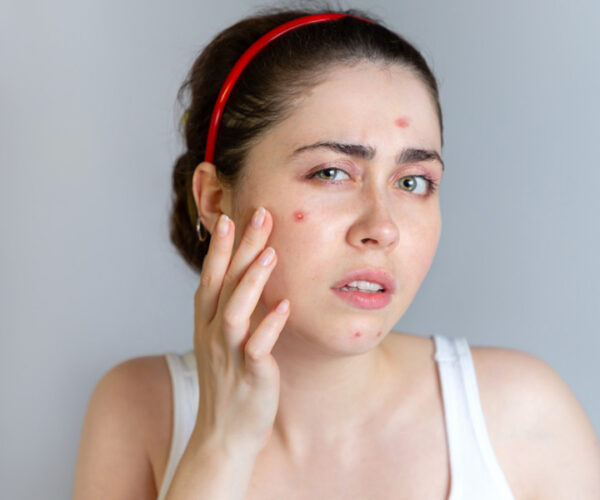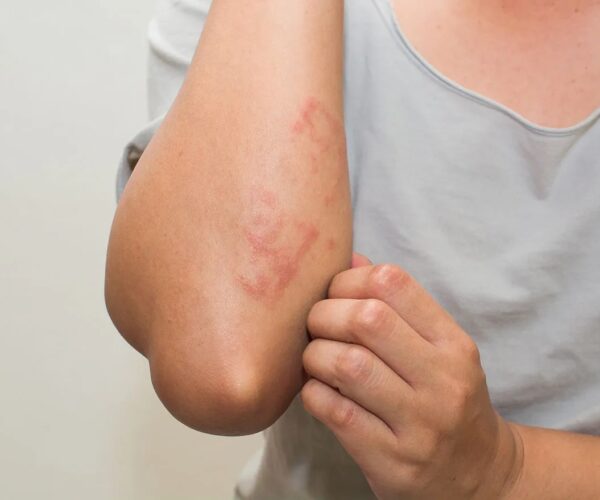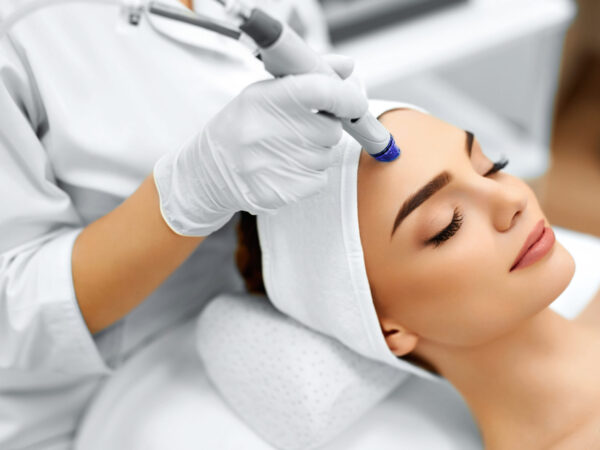Acne is a common skin condition where your skin pores clog, causing pimples. The pimples are pus-filled and can be painful in some people. Acne mostly affects your face but is also common in the chest, shoulder, and upper back. It is common in teenagers and young adults undergoing hormonal changes, but it can also happen during adulthood. You are more likely to develop acne if you have a family history of acne. Acne is treatable. The treatment option your specialist, Dr. Michael Paltiel uses depends on your age, acne type, and severity. There are many treatments for acne, including:
Topical acne medications
Topical acne medications treat your skin. You can rub them directly onto your skin the way you apply lotion or moisturizer. Topical acne medications can contain one of the following ingredients:
Benzoyl peroxide: You can find benzoyl peroxide as an over-the-counter product as a leave-on gel or wash. It targets the surface bacteria that usually aggravate acne. You can use lower concentrations to reduce skin irritation.
Salicylic acid: This product is available over the counter as a cleanser or lotion. Salicylic acid eliminates the damaged top layer of your skin. It dissolves dead skin cells, preventing your hair follicles from clogging.
Retinoids: This product is available without a prescription. Retinoids break up blackheads and whiteheads and prevent clogged pores.
Oral medications
Various oral medications can help treat acne. They include:
Antibiotics
Your doctor can recommend antibiotics if a bacterial infection causes your acne. They help treat moderate to severe acne. Common antibiotics for acne include tetracycline, minocycline, and doxycycline.
Isotretinoin
Isotretinoin is an oral retinoid. It shrinks the size of oil glands which contributes to acne formation.
Contraceptives
Certain contraceptives can help treat acne in some women. The United States Food and Drug Administration has approved birth control pills like Estroptep and Yaz to treat acne. These pills contain estrogen and progesterone.
Hormone therapy
Hormone therapy can be beneficial if you experience acne flare-ups during menstruation or irregular periods resulting from excess androgen. It consists of low-dose estrogen and progesterone, or a drug known as spironolactone that blocks the effect of particular hormones at your hair follicles and oil glands level.
Other acne therapies
If topical or oral medications are ineffective or have acne scars, your doctor may recommend other acne therapies to clear your skin. These therapies include:
Steroids
Your doctor can administer steroid injections by injecting large nodules to reduce inflammation. The injections are useful for severe acne.
Lasers
Dermatologists can use lasers and light therapy to treat acne scars. A laser delivers heat deep into your skin, stimulating collagen production. The created new and healthy collagen encourages the growth of new skin, replacing the damaged skin with acne scars.
Chemical peels
Chemical peels involve your dermatologist applying special chemicals on your skin that peels off the top layer of your skin. The treatment eliminates top dead skin cells, giving way for new skin that is smoother and lessens acne scars.
Acne is a skin condition where your skin pores clog, causing pimples. There are many treatments for acne, including oral medications, topical medications, lasers, and chemical peels. Schedule an appointment at Adult and Pediatric Dermatology for acne treatment to eliminate your facial pimples.



